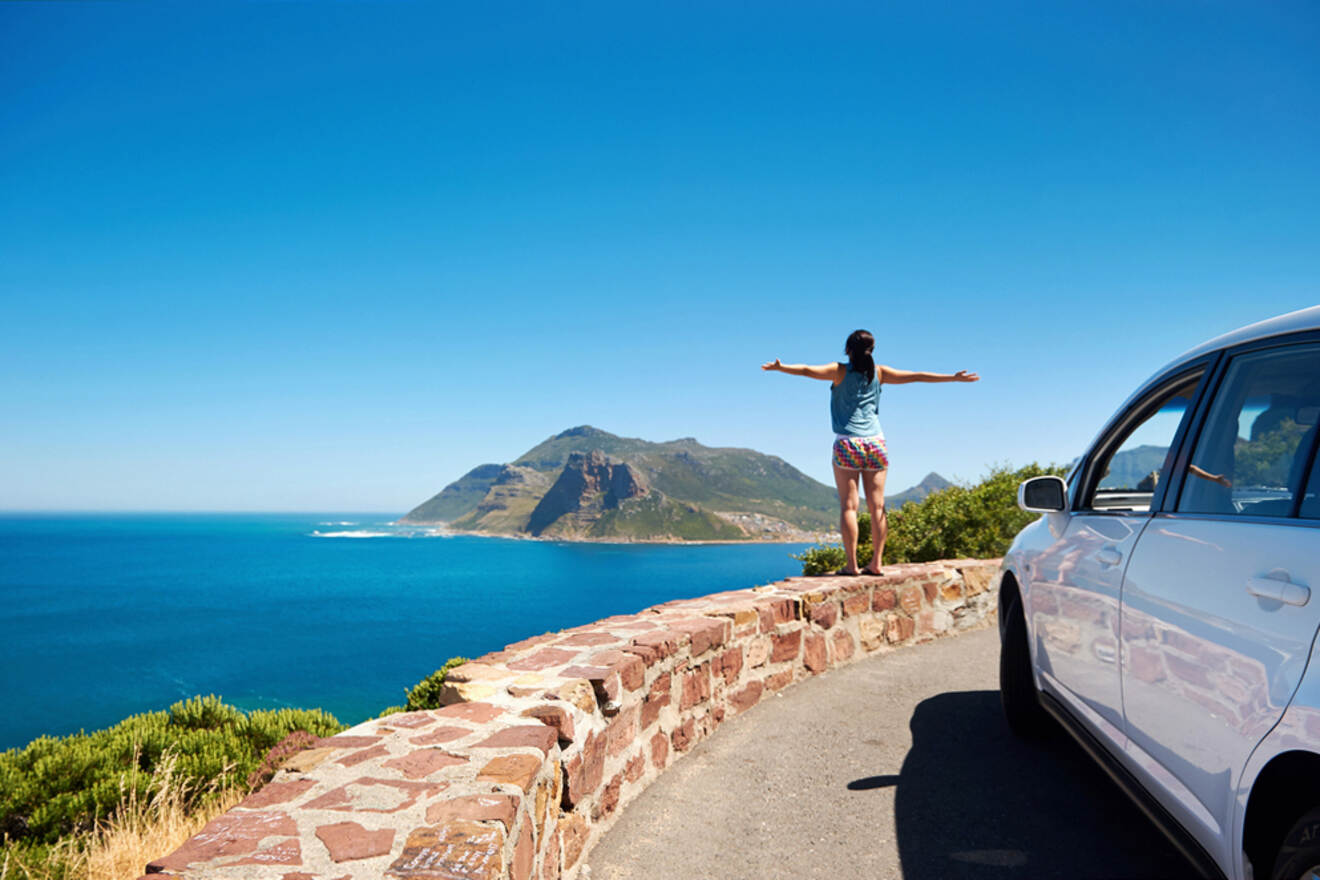
Renting a car in South Africa is the absolute best way to explore this beautiful country’s seas, mountains, stunning national parks, and anything in between! I’m from South Africa, and I’ve compiled information about everything you need to know when renting a car in my country so you can have the best experience possible!
I’ve read all the rental company reviews, spent hours searching and comparing rental prices, and jotted down the road etiquette we follow in South Africa. Most importantly, I included some important tips on how to avoid making common car rental mistakes in the country, so stay tuned until the end!
Contents
- 1. Prices for renting a car in South Africa
- 2. How to choose the type of car that is perfect for you?
- 3. Road tolls and fines
- 4. Parking rules and prices
- 5. Additional fees when renting a car in South Africa
- 6. Road quality in South Africa
- 7. Useful apps that help people navigate
- 8. Things to check when you receive your rental car
- 9. Campervan hire in South Africa
- FAQs about renting a car in South Africa
- Final Thoughts on Car Rental in South Africa
To start off, check out this quick table with general information about car rentals in South Africa:
| Age | 18 years and older |
| Documents needed | Driver’s license, passport, and credit card |
| Driving license requirements | In English or International Driving Permit |
| Speed limit | 40kph on residential roads, 60kph or 80 kph on general roads, 100 or 120 kph on highways |
| Which side of the road | Left |
| Children rules | Children less than 3 must have an appropriate car seat |
| Alcohol allowed | BAC less than 0.05% |
| Metric or imperial system | Metric (speed in kph, fuel in liters) |
| Toll roads | On highways, cash or card at the window |
| Where to book | Rentalcars or Discovercars |
1. Prices for renting a car in South Africa
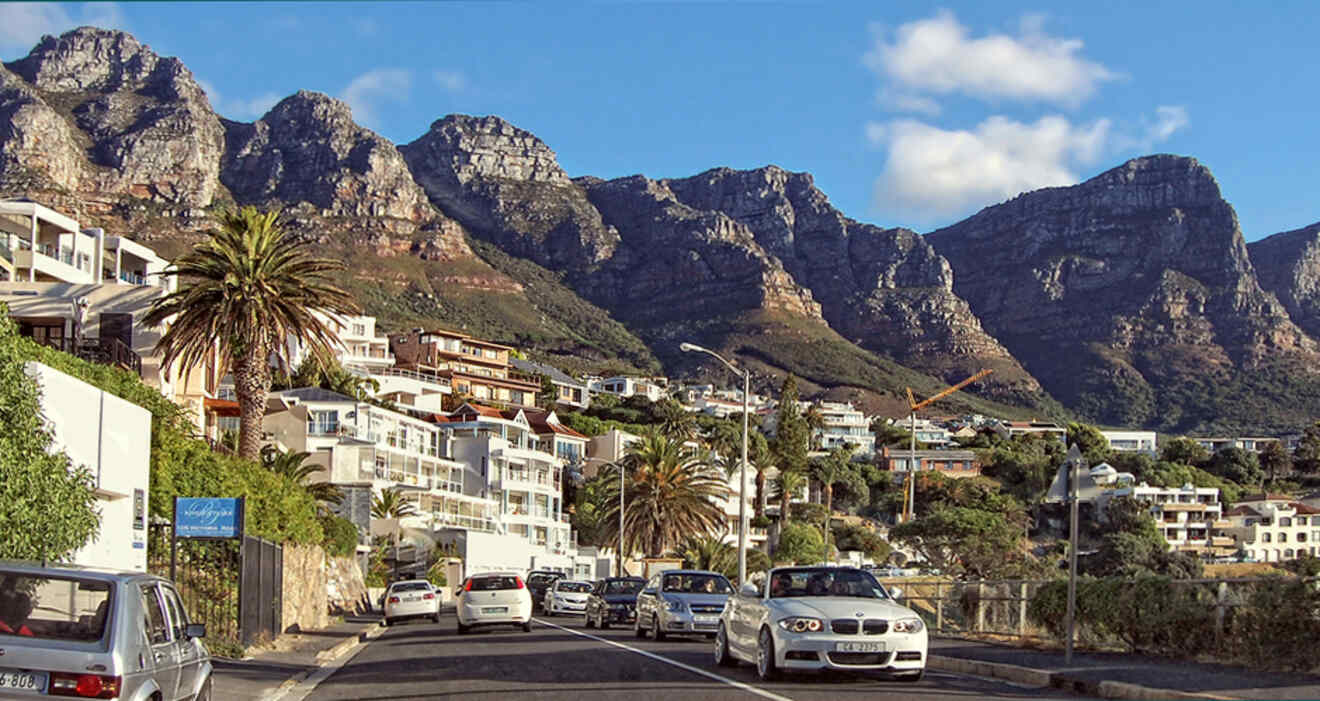
First things first – how much can you expect to pay for a car rental in South Africa? The good news is that basic rates are, in general, more affordable compared to most African countries.
I’ve sorted the prices neatly according to season and car model so you can have a better insight into price fluctuations.
1.1 Prices by car type & season
Check out this table; it shows the price overview for low vs. high season for different types of car rentals in South Africa (with pickup and dropoff in Johannesburg, prices may vary slightly for other destinations):
| Type/Price per day | Low season | High season price | |
| Compact/economy | US$22 – 30 | US$30 – 40 | Best deals |
| Sedan | US$30 – 45 | US$40 – 85 | Check the rates |
| SUV/4×4 | US$40 – 90 | US$50 – 120 | Book here |
| Minivan/campervan | US$50 – 120 | US$60 – 150 | Explore more |
Much like in any other place, price for car rentals varies depending on the season. The highest rates are from December to February since these are summer months and most people, including locals, travel for holidays.
The low season is from June to August, as these are the winter months, so naturally the demand is lower.
In the shoulder season, which is from March to May and then September to November, you’ll find slightly higher prices compared to the winter months. But they’ll be more affordable compared to the summer months.
Do note that the price difference according to seasons isn’t very dramatic – I tested car rental aggregator websites for different seasons, and I usually got a US$3 difference per day for the same vehicle in different seasons (peak vs. shoulder vs. low), meaning there’s on average a US$6 difference per day when you hire a car in peak vs. low season. If you only plan to hire for a few days, you won’t even notice the difference. The savings are visible for longer rentals!
1.2 Gas prices
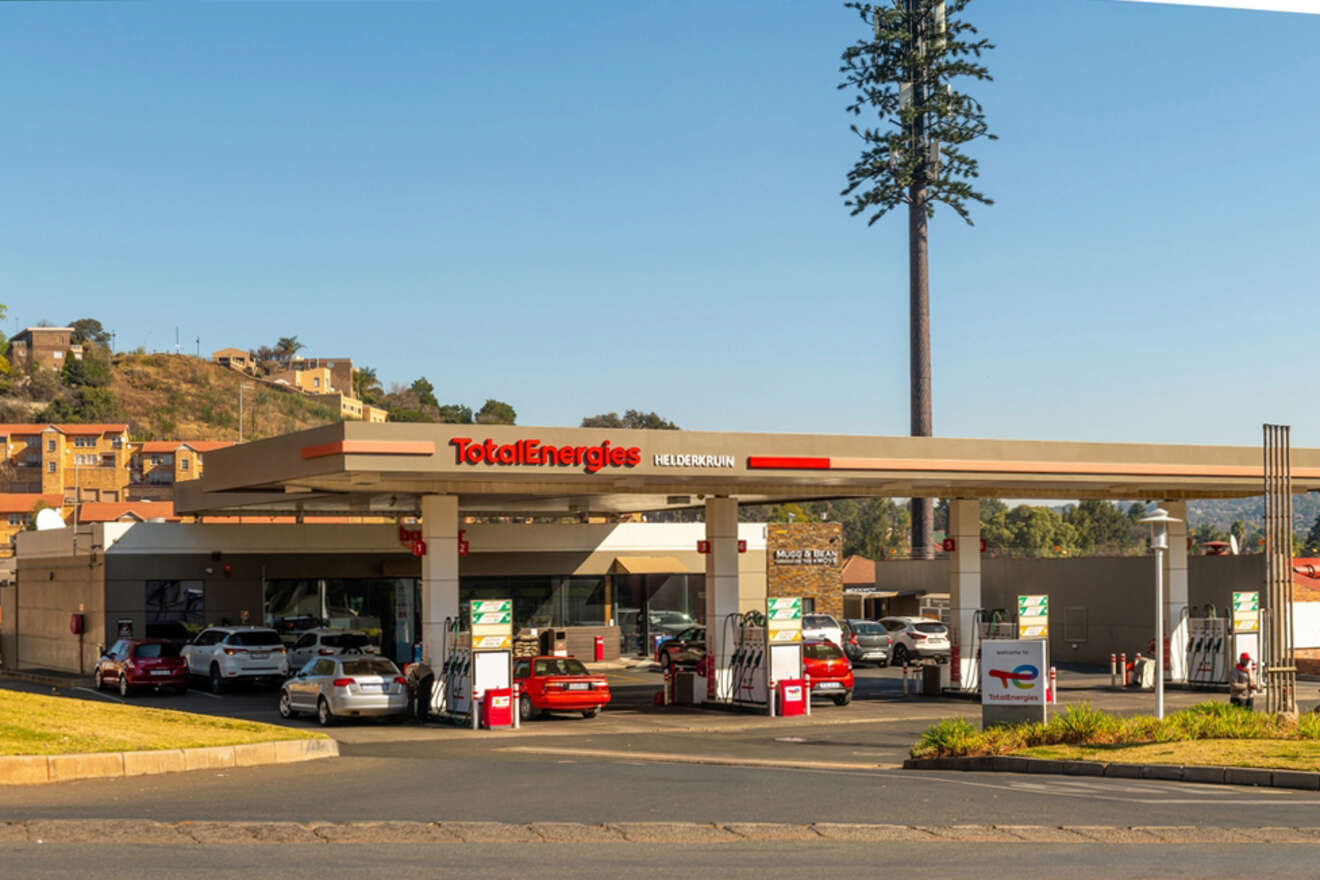
You can check the current gas prices in South Africa on the Shell website. They do regular price updates. Shell is one of the most popular gas station service providers in the country, but I also recommend BP or Engen.
Overall, fuel prices here are pretty high by South African standards. It costs me around $50 to fill my tank, with the prices changing slightly day by day. If you’re visiting from Europe or the U.S., then this may not seem like a lot, which is the good part!
How gas stations work
In South Africa, we don’t put fuel in the car ourselves. There are petrol attendants at every gas station who do that for us. They’ll also offer to check your tire pressure, oil and water.
The petrol attendants also bring you the credit card machine and even clean your windows and watch your car for you while you’re away. Locals respect their fellow servicepeople, and we always make sure to tip them!
I highly recommend you always have small change available in the car to use for tips for the attendants. R5 (that’s like US$0.2) is more than enough, but you can always give more. If you don’t have any small change, you can always buy them a soda at the shop (Coke is always a win).
Overall, gas stations are widely available across the country (we drive a lot in South Africa), so usually you don’t need to plan your refills ahead. The situation changes when you visit the neighboring countries, and in that case, you should pre-fill your car before leaving South Africa (also double check your insurance covers you over the borders).
1.3 Car rental insurance prices
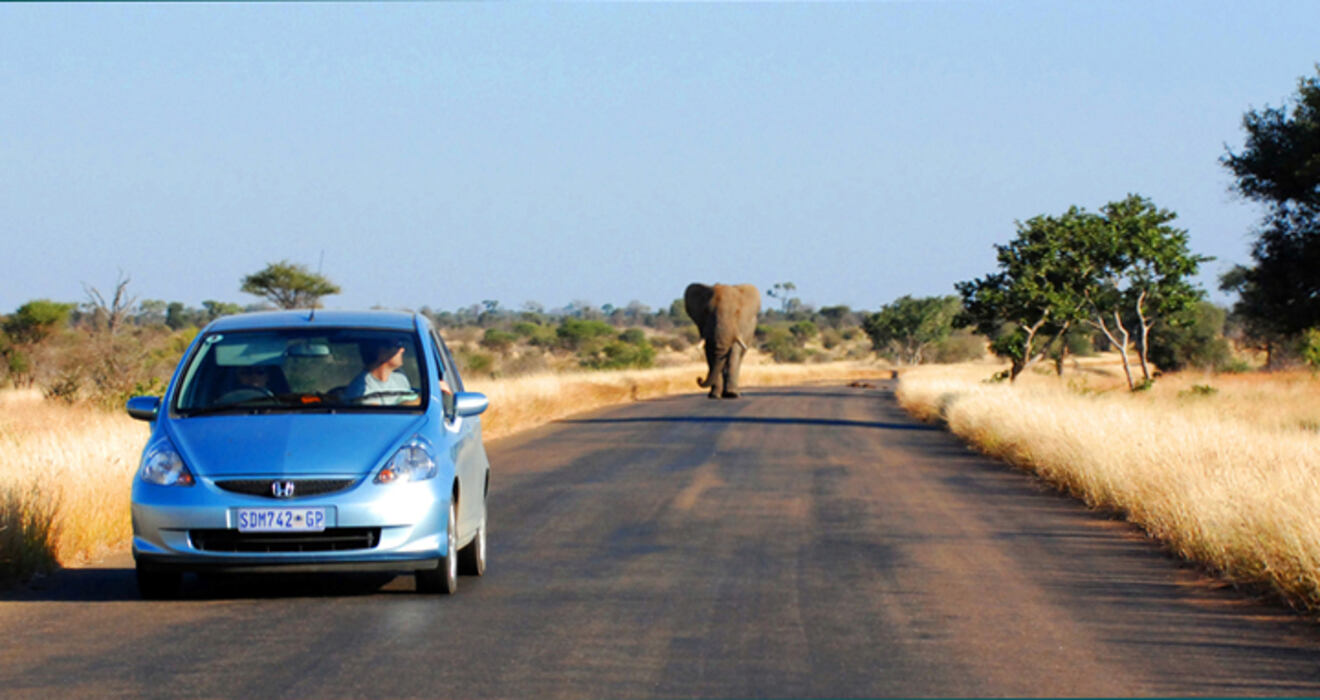
Most car rental agreements in South Africa include basic third-party liability insurance. However, extra insurance is necessary when renting a car in South Africa! There are many potholes on the roads (sometimes even on highways), and you don’t want to risk it.
Collision Damage Waiver (CDW) is also often included in the rental rates, and so is the theft protection fee. However, I highly recommend you get the Super CDW to make sure you’re protected not only against damage done to your vehicle, but also the damage done to others.
The price for additional insurance can vary drastically (and I mean it) depending on the car rental company and conditions. My advice is to get your own insurance, either from your credit card or travel insurance, to avoid paying hefty insurance fees with local car rental companies.
1.4 Tips on how to save on your rental car
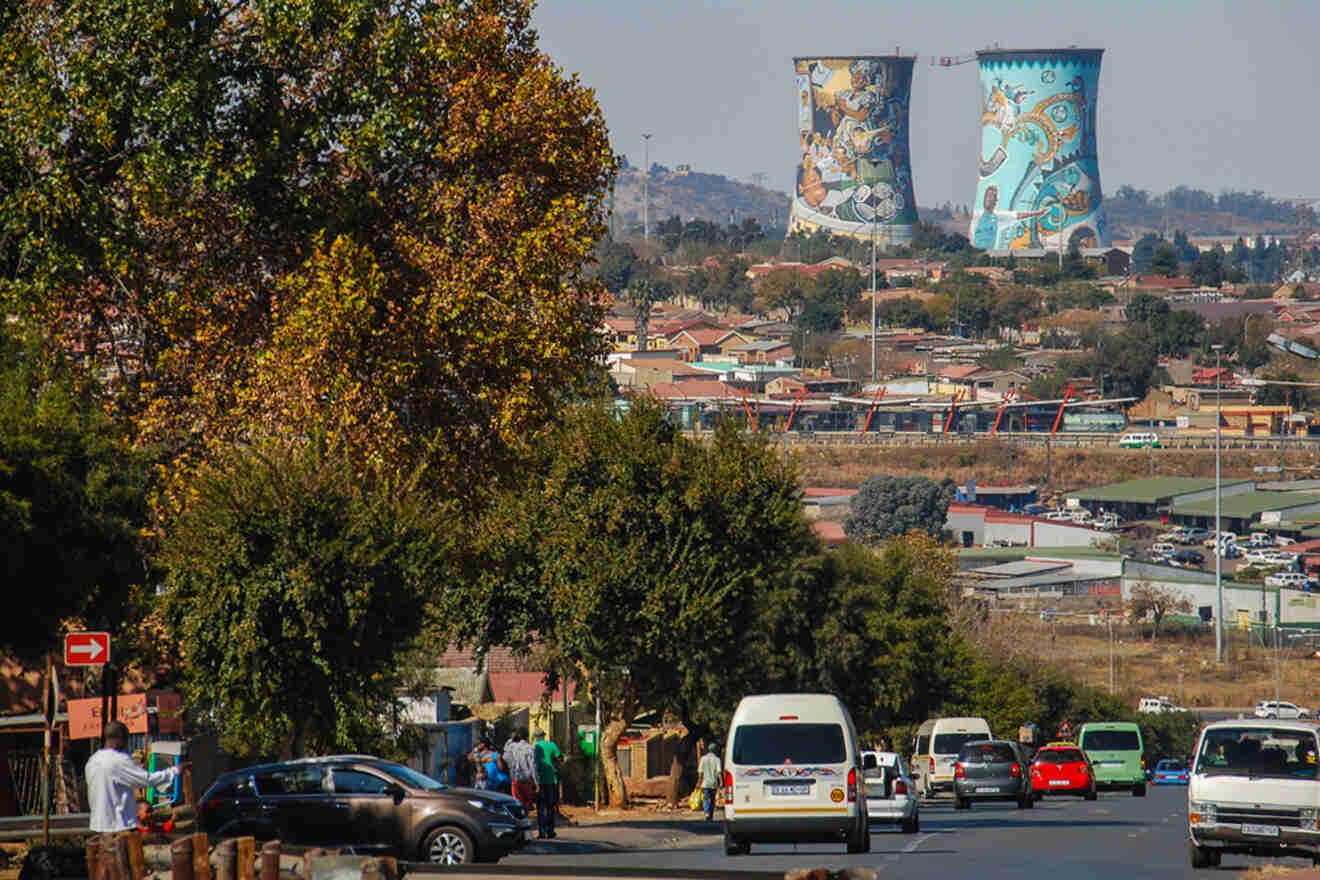
Now, here are some tips that will help you save money on your car rental in South Africa:
- Book in advance, you can save significantly because more vehicles will be available, and you won’t have to choose an expensive car because it’s the only one out there. There’s a high demand for larger vehicles in South Africa, so keep that in mind when planning your rental!
- Rent in big cities like Johannesburg and Cape Town – you’ll often find better rates there.
- Use site aggregators like Rentalcars because they have cheaper rates compared to when booking on the car rental company’s website directly.
- Choose an agency that won’t charge extra (or too much) for dropping off the car at a different location.
- Get a car with manual transmission, since the automatic ones are rare and have a higher price.
- Rent different car types at different places. For example, if you land in Cape Town and want to see the area, get a small, cheaper car. Then, if you plan to fly to Johannesburg and want to explore off-the-beaten paths or go to Eswatini or Lesotho, upgrade to a 4×4 that can handle the dirt roads.
- Get unlimited mileage if you plan to drive a lot. Some basic rates are limited to 200 km/day (124 miles) and companies will charge extra for every kilometer you pass on top of that.
2. How to choose the type of car that is perfect for you?
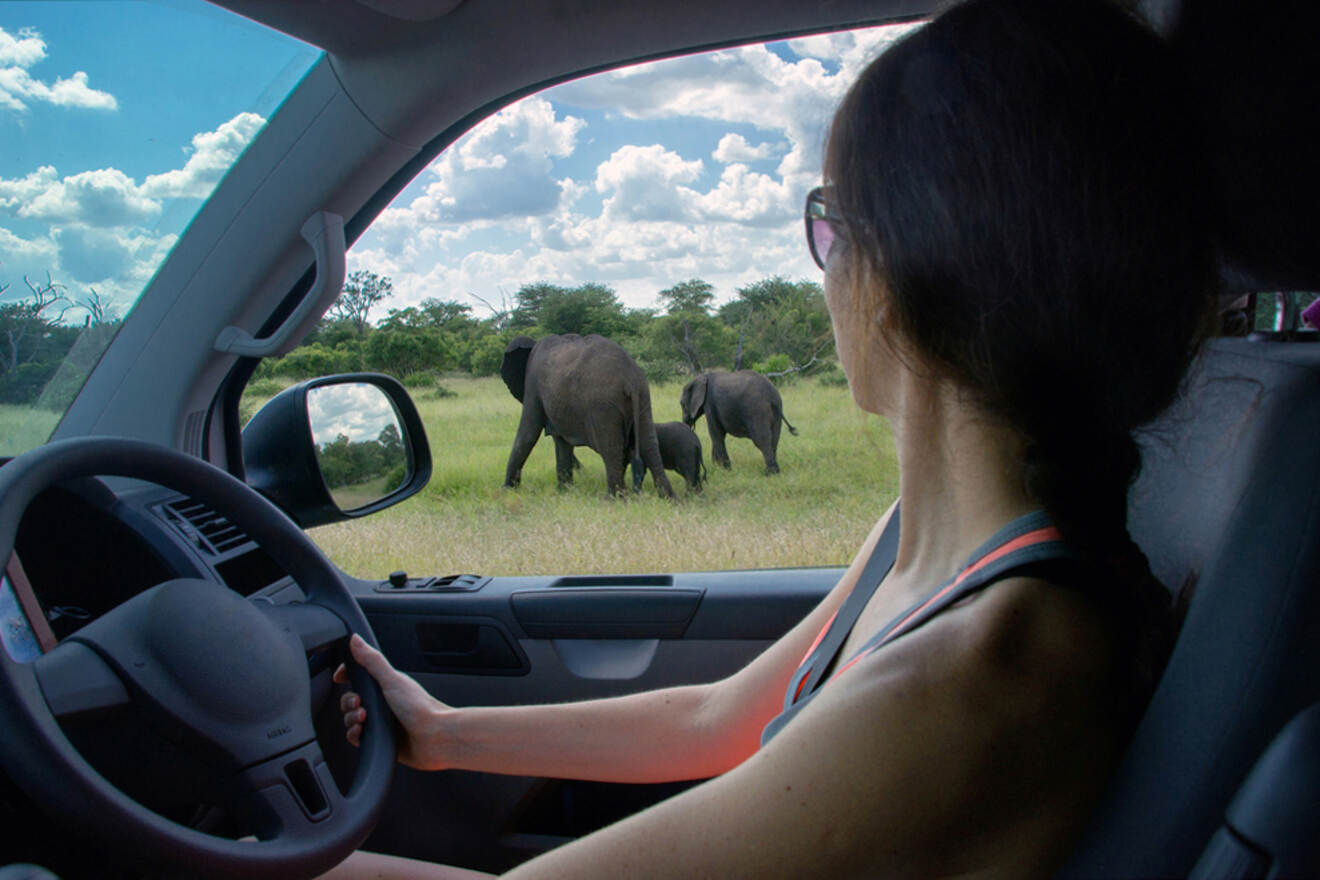
Here’s a quick guide on the most popular car rental types you can choose from:
- Economy/Compact Cars: 4 seats, 1 large bag – great budget option for solo travelers and couples
- Midsize/Sedan Cars: 5 seats, 1 large bag – more spacious and comfortable than the economy, great for small families
- Large Cars: 5 seats, 2 large bags – best for longer trips + families
- SUVs/4WDs – 5 seats, 3 large bags, perfect for off-road trips and large families, or anyone looking for extra space
- Campervans – An option for travelers who want to use their vehicle as accommodation
MY ADVICE: The roads in South Africa are large enough for most types of vehicles. If you’re planning an off-road adventure, I definitely recommend a more comfortable, larger car that does well on dirt roads. For city rides alone, get a smaller, more economical car.
SECURITY TIP: I highly recommend getting a vehicle with tinted windows in the back for safety. This way, potential criminals won’t be able to see the luggage in your trunk! Also, don’t leave valuables and bags anywhere that can be seen in the vehicle. Rather put them in the trunk.
3. Road tolls and fines
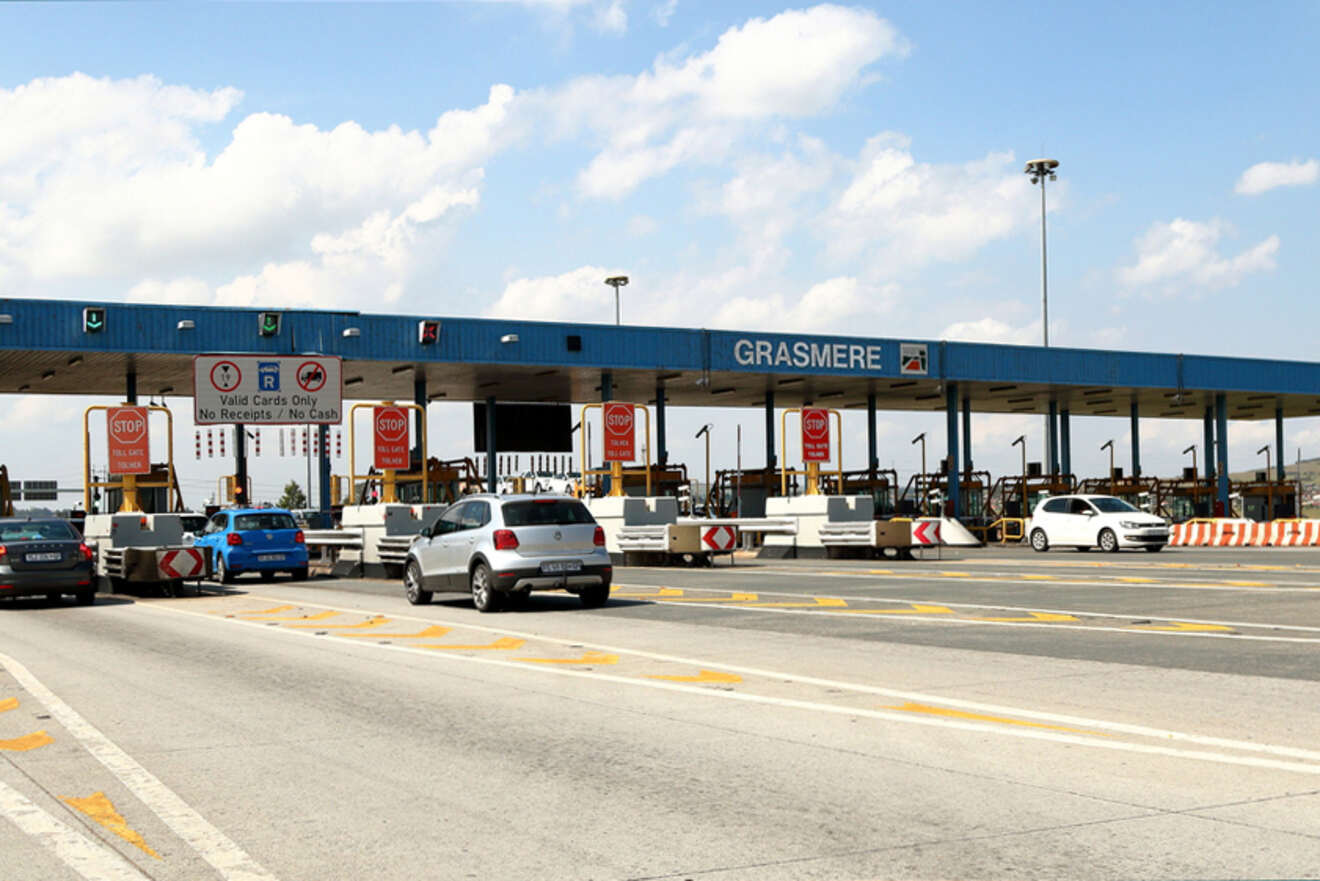
We have road tolls on highways, and I always pay using cash or card at the window. There used to be an e-Toll system on the Gauteng freeways, but it was shut down as of October 2022 until further notice. At the time of writing, only motorists can use this system in Gauteng.
As far as fines are concerned, here’s a short list of the most common offenses and how much you can expect to pay for them:
- Speeding – up to R1,500 (US$78) or court
- Not putting on your seatbelt – R250 (US$13)
- Using your phone – R500 (US$26)
- Careless driving – Court
- Crossing the continuous white line – up to R750 (US$40)
- Driving drunk – Court
- Parking in the wrong place – from R250 up to R1000 ($US13 – 52)
- Driving on the wrong side of the road (right) – R1000 ($US52)
If you get a ticket while having a rental car in South Africa, your car rental provider may also include an “administration fee” on top of the ticket price.
A lot of times the speed cameras in Joburg won’t work, and you’ll find the police sitting on the side of the road. This can happen when driving both during the day and at night. Photo radars are also common in Cape Town and along Garden Route and Whale Route.
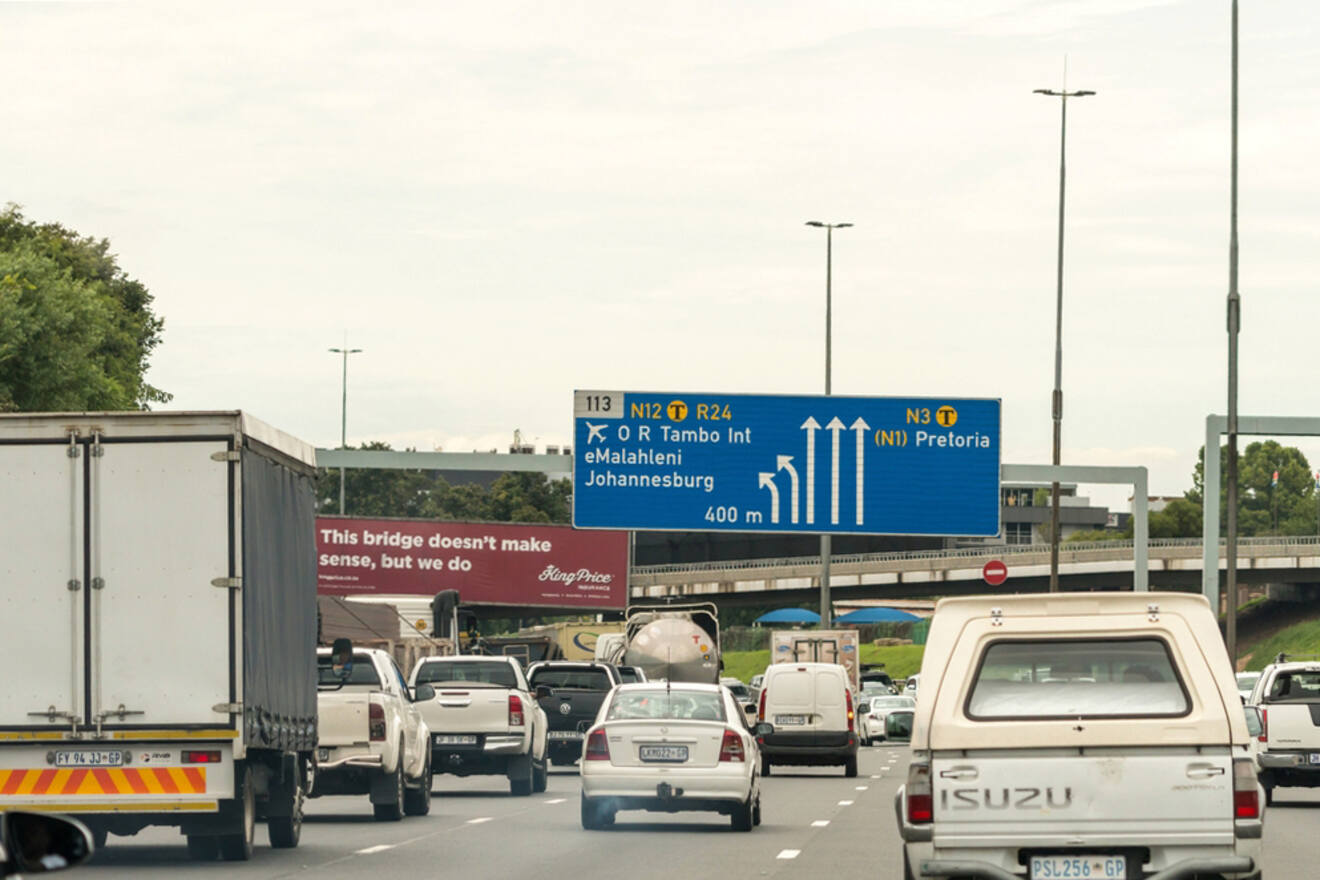
There’s this unwritten rule when driving in Johannesburg that it’s okay to cross a red robot at night (this is what we call the stop lights in South Africa!) if it’s safe to do so–meaning no vehicles or people being around and you feel unsafe.
If you feel unsafe and are going to cross red lights at night, be sure to look both ways and make sure the road is completely clear.
During the day, you might see minivan taxis crossing through red lights, this is pretty normal for them so keep an eye out when you’re driving.
Also, roadblocks are common in the country, especially on weekends to catch drinking and driving as well as license disc expiry (and checking fines). This is why you should absolutely never drink and drive. As you could see above, the law is pretty strict about drinking and driving and they can take you straight to the court for it.
NOTE: Bribing is common in South Africa. Sometimes the police officer can give you a hard time, and this can mean that they are looking for a bribe. If you haven’t been drinking and driving and they are still giving you a hard time, rather request going to the local police station. I don’t recommend bribing as it sets a bad precedent, it’s really not worth drinking and driving (rather catch an Uber).
Subscribe here to get up to 35% off your accommodation for your next trip!
4. Parking rules and prices
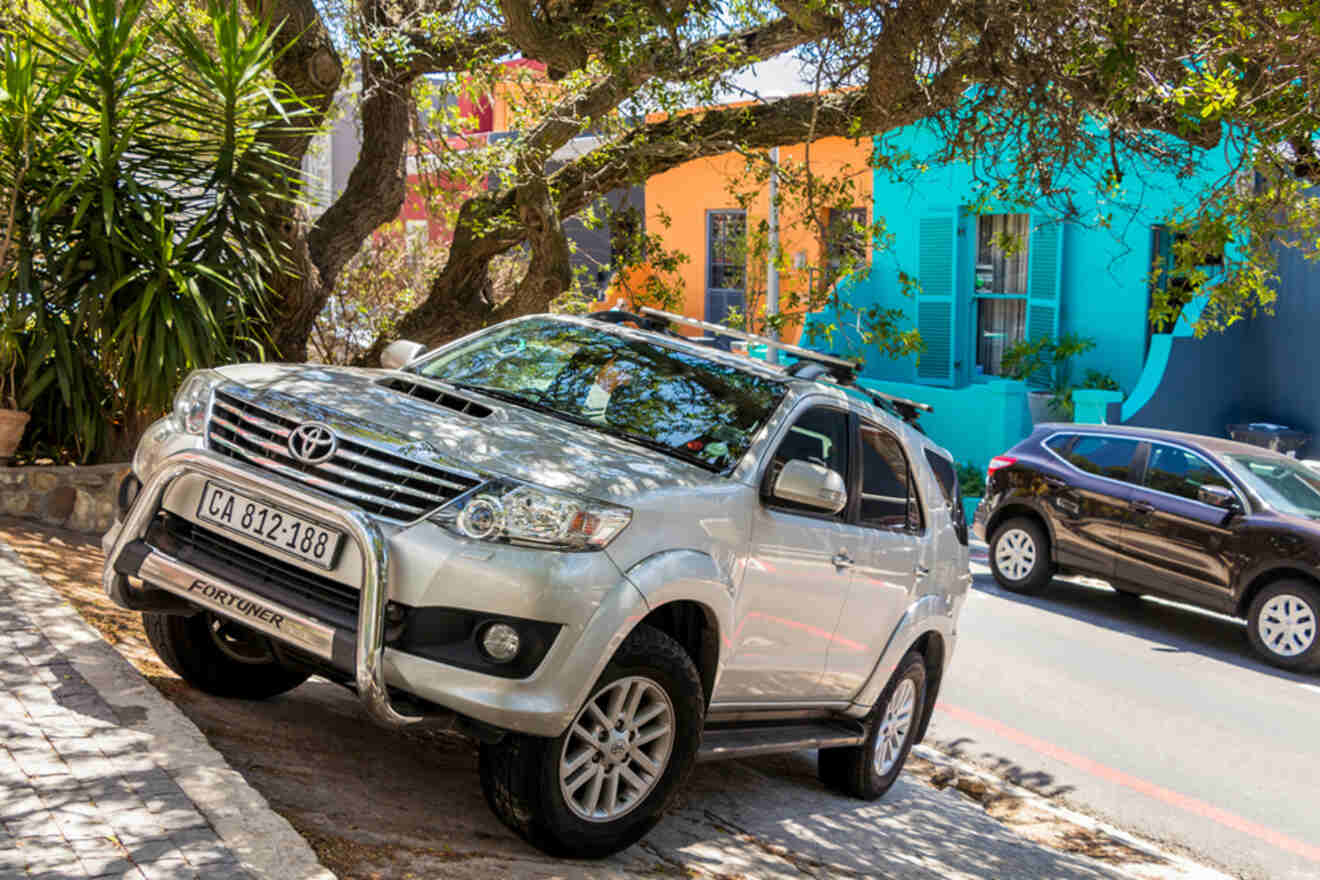
Parking is ample in Johannesburg and over the rest of the country since we use cars a lot. You won’t have issues finding parking spots around. On average, expect to pay around R10 (US$0.50) per hour for parking. We have flat rates on weekends and public holidays.
You can pay for parking using cash, credit or debit cards, and sometimes mobile apps.
Don’t park on yellow lines in South Africa! It’s also forbidden to park facing oncoming traffic!
You’ll also find parking attendants in many places in big cities, for example in Cape Town and Joburg. It’s common to tip parking attendants between R5 and R20 (US0.25 and US$1), I know I always tip them.
Major cities have various parking spot types like parking garages or parkades, surface parkings, and on-street metered parking.
5. Additional fees when renting a car in South Africa
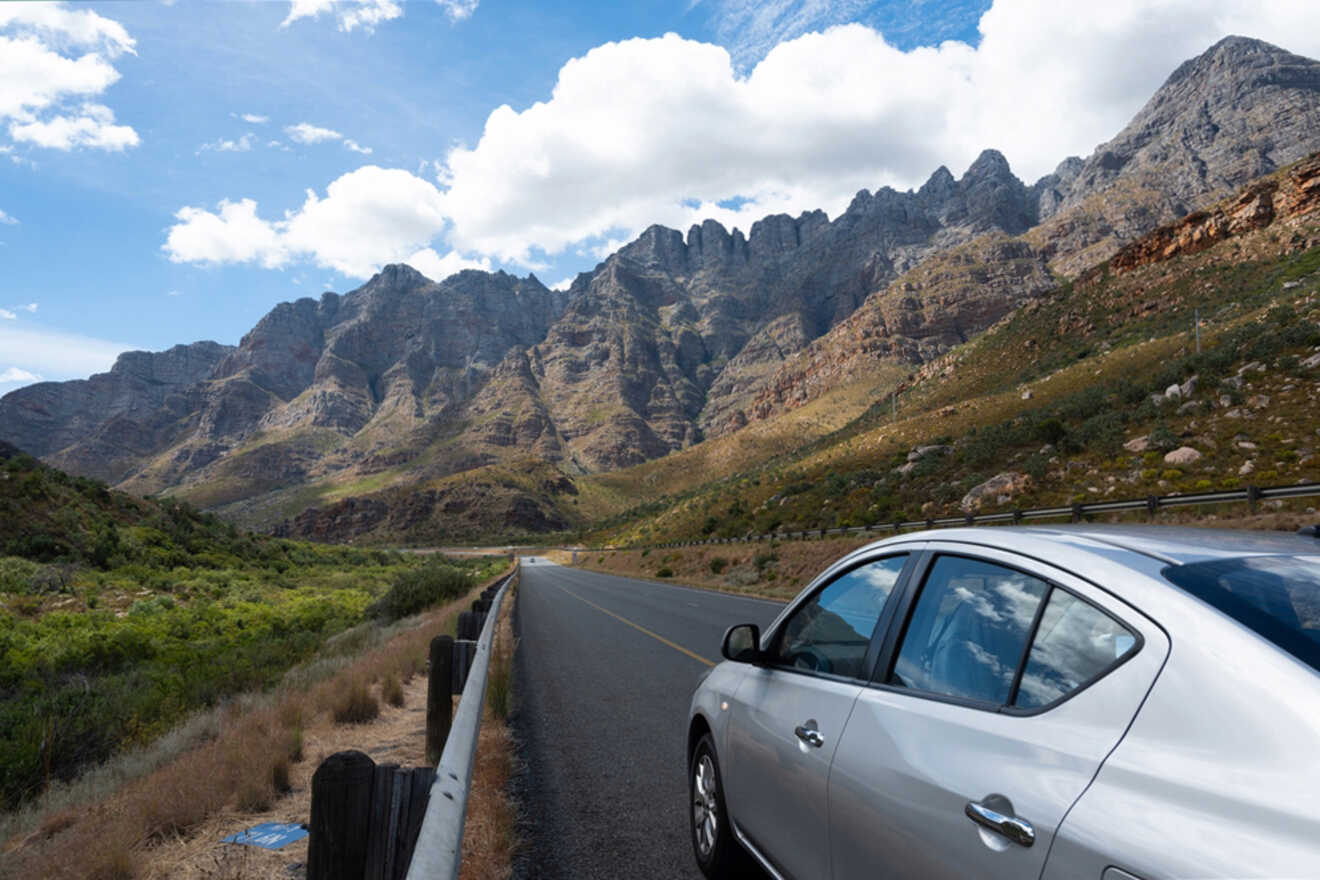
Car rental in South Africa (and in general) often comes with unexpected or additional fees. Here’s what can increase the cost of the basic rate for your car rental in South Africa:
- Insurance
- One-way car rental
- Administrative fees
- Fueling
- Cleaning the car
- Car seat for the child
- Passing the mileage limit
- Fee for a young driver
- Border crossing fees for traveling to other countries
6. Road quality in South Africa
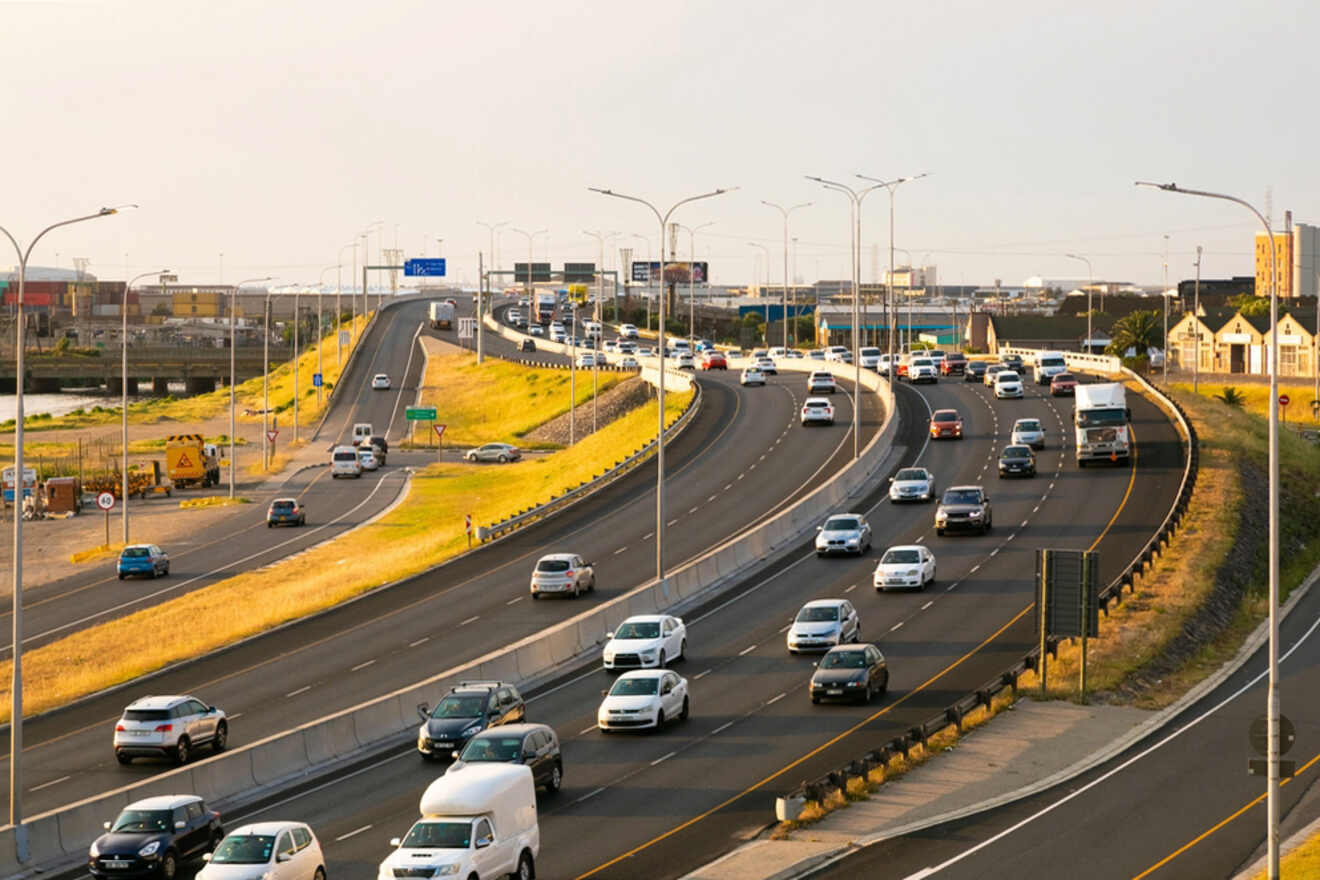
Road quality in South Africa overall is decent, but in places, there are tons of potholes and cracks you need to be aware of. The Eastern Cape is known to have more potholes than the Western Cape, so you should be more careful when driving in this part of the country.
Roads in South Africa are okay compared to the rest of the continent, but due to insufficient funding, there are still plenty of unpaved roads and potholes to be aware of.
Also, as I previously mentioned, the roads are pretty wide, so they can fit any type of vehicle with ease.
Overall, the roads are better quality in Joburg (that’s how we call Johannesburg), Cape Town, and Tshwane. However, Joburg had a couple of pretty bad potholes, so please drive carefully.
NOTE: Animals on the road are a real thing in South Africa. Be mindful and pay extra attention when driving in the Eastern Cape. Some major highways around large cities can also have animals on the road, so it’s just something to be aware of.
Now South Africa has such a diverse landscape, you can drive for days and not get tired of the views! These are the most scenic roads you have to take:
- Panorama Route in Mpumalanga for stunning sights of the forests, waterfalls, panoramic viewpoints, and more.
- Chapman’s Peak Drive along the West Coast just South of Cape Town, with its dramatic cliffs and lovely ocean views.
- Garden Route stretching from Port Elizabeth to Mossel Bay with lagoons, forests, and plenty of wildlife (think penguins!).
- Flower Route on the West Coast, I recommend a drive here in the spring when the region is in full bloom!
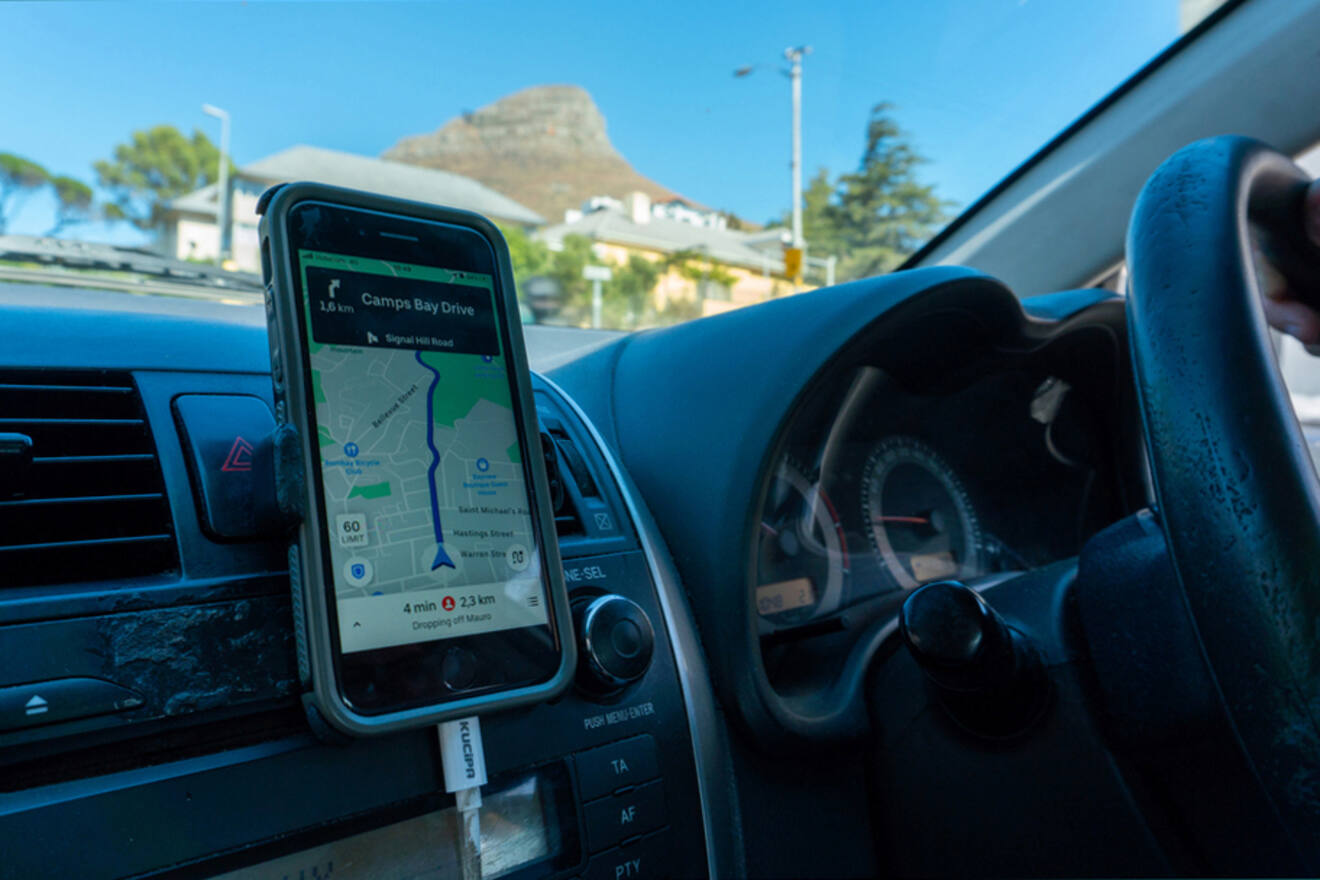
We use various apps to get around in South Africa. The most popular ones are Gmaps, Waze, and Apple Maps. You can use whichever you’re most used to! I like Waze because you get live updates on the road, and is probably the best app to get real-time updates (it also tells you about road blocks and if there are any cops on the road).
I recommend you download offline maps (Gmaps is great for this) of the cities and places you plan to visit. The signal is usually good in big cities, but in rural areas you’ll have trouble following live GPS suggestions unless you have the map pre-downloaded on your phone!
8. Things to check when you receive your rental car
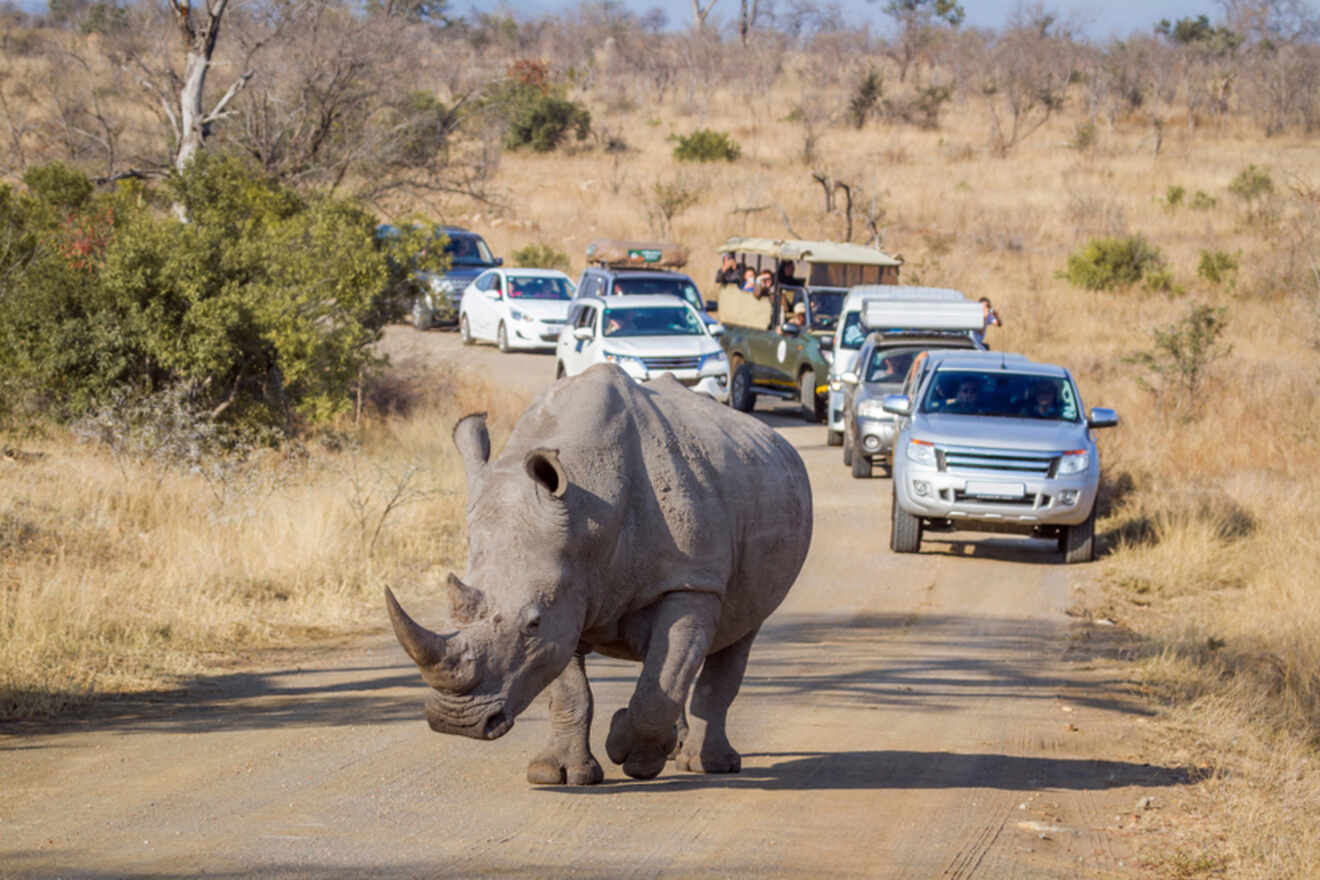
If you’ve never rented a car before, I’ve got some precious info for you here so you won’t make mistakes many rookie rental drivers make! And even if you’re experienced with the topic, use this list as a reminder.
- Take pictures of everything the moment you receive the car, but also right after you drop it off.
- Have a careful look at the car to make sure there are no damages and scratches.
- Make sure all the documents are inside the vehicle.
- Know the number to call in case of an accident. Best to have it inside the vehicle or saved in your phone.
- Bring all the cards, passports, and other documents you may need with you if you plan to cross the border to any of the neighboring countries.
And when you’re returning the car, try to do so during work hours so that people from the company can check the vehicle for damage in your presence.
I read so many reviews of people who had problems with car rentals in South Africa (most complaints came from Avis users, but also many people rented with Avis without issues) where they were overcharged for damage that the rental company said occurred to the vehicle during the time of the rental.
A safe thing to do to avoid these kinds of charges is taking pictures of the vehicle after returning it, in front of the person from the car rental company. Don’t mind if they tell you not to worry about taking pictures because they’ll check the car for you – you get that proof regardless!
9. Campervan hire in South Africa
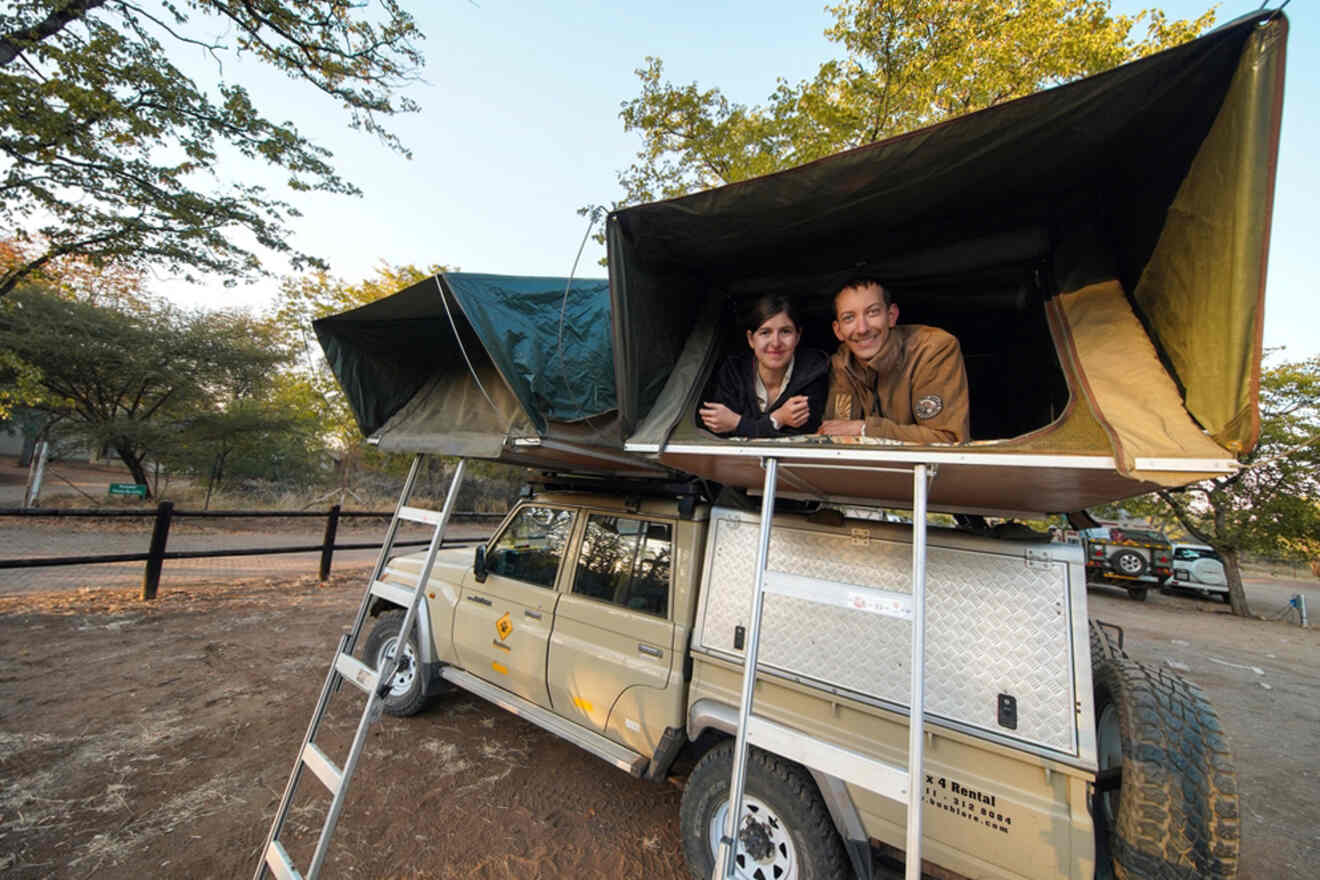
Campervans are actually really common in South Africa! We have a vast country with so many natural sights and diverse landscapes, and the wide roads make it convenient for campervans to get around.
The most popular campervan hire companies are Maui and Britz, but you can also find local providers like Roadtrippers and Bobo Campers.
The peak season for campervan hire is from October to March, as this is the busiest time of the year. In general, I recommend campervans if you plan to spend time in nature. They’re definitely not convenient for city hopping!
We have a great network of campsites across the country which are very well-organized. Do note that wild camping isn’t encouraged in South Africa! Honestly, it’s always better to stay in an official campsite, especially since we have a high crime rate in the country!
| 🚗 Economy car: | US$25-35 |
| 🚜 4×4 price: | US$40-60 |
| 🚐 Campervan price: | ~US$80 |
| 👶 Driving age: | 18 |
| ⛽ Gas price: | US$1.3 per l. |
| ✈️ Cost of traveling: | Low |
| 👍 Most popular car: | Toyota Corolla or similar |
| 🚙 Top rental company: | Rentalcars |
FAQs about renting a car in South Africa
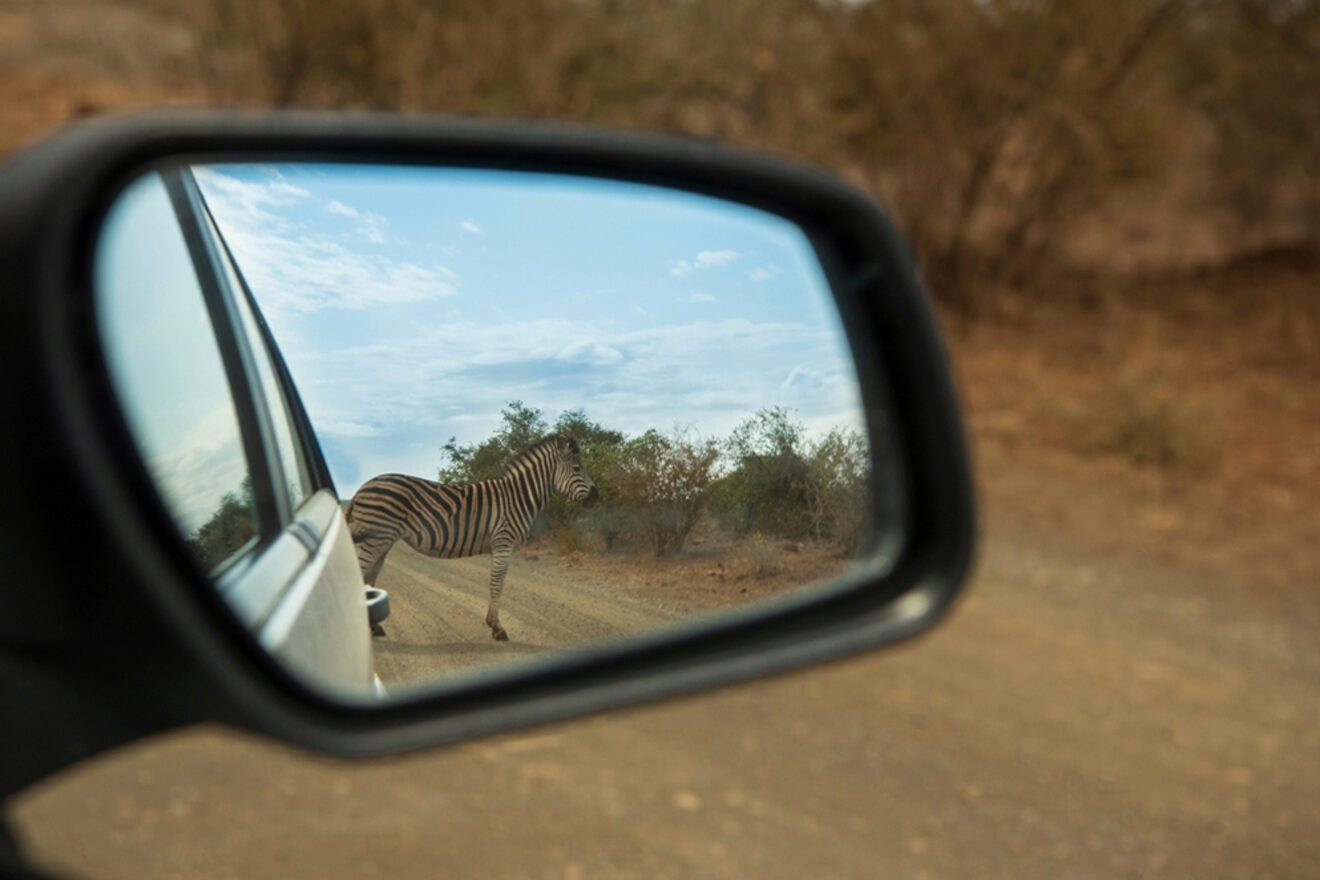
❤️ Is it worth renting a car in South Africa?
Definitely! Renting a car in South Africa is the cheapest and most convenient way to travel across the country!
🚗 Can a foreigner rent a car in South Africa?
Yes, a foreigner can rent a car in South Africa. They just need a valid driver’s license, a credit card, and a passport.
🪪 What do I need to rent a car in South Africa?
You need to have a valid driver’s license in English (if not, then get an international permit in your home country), a credit card, and a passport.
💵 How much does it cost to rent a car in South Africa?
Basic rates for car rentals per day range from US$22 to up to US$150 (or more for luxury cars) in South Africa.
Final Thoughts on Car Rental in South Africa
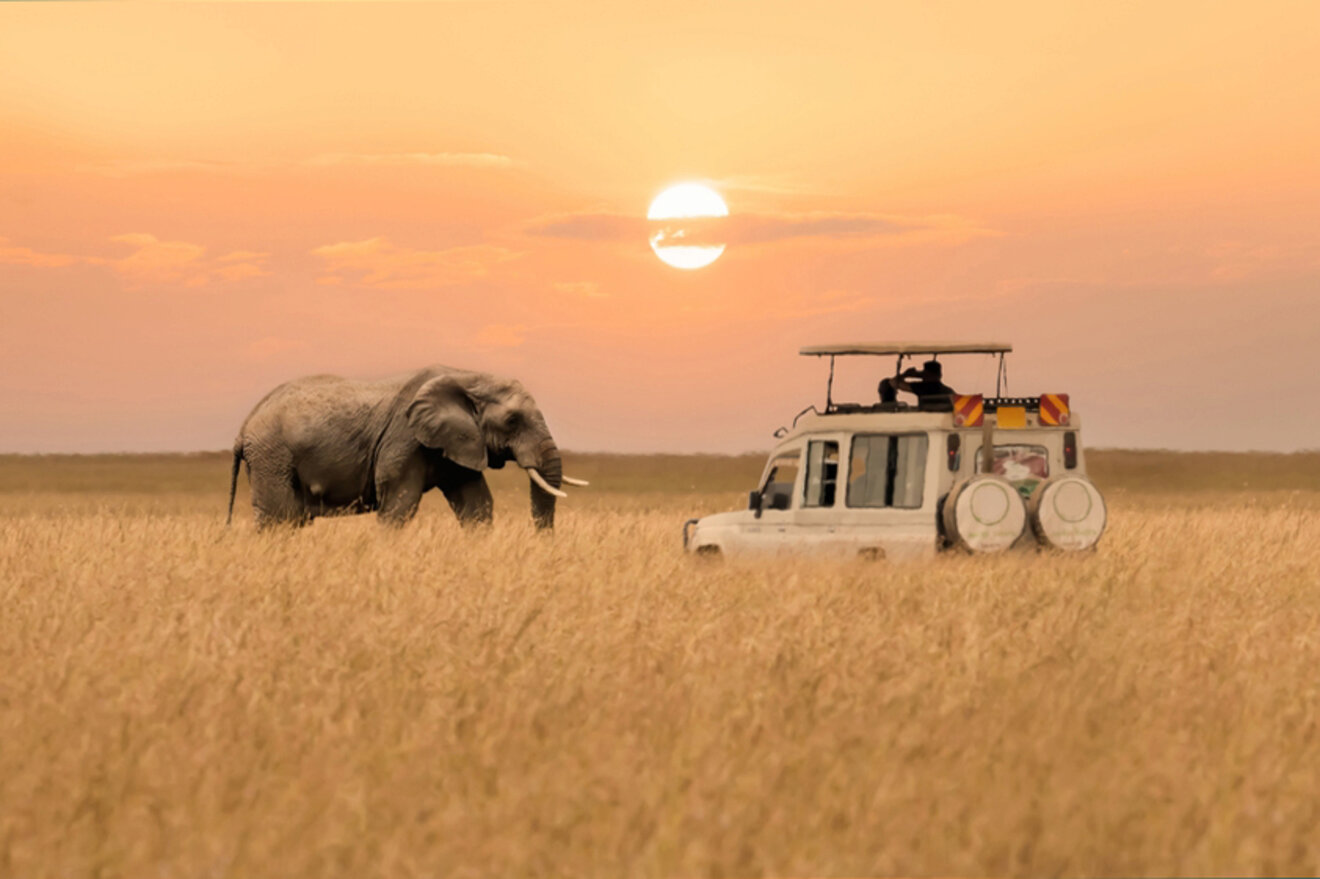
That was it, my dear reader, you’ve reached the end of my guide on renting a car in South Africa! Hopefully, you are now equipped with all the information you need to kickstart your South African adventure in the best way possible!
Remember to book your car hire in advance to secure the best deals! Again, the demand for car rentals is high in South Africa, so if I were you, I’d book months ahead!
Explore the majestic Panorama Route, enjoy the stunning ocean views from Chapman’s Peak Drive, and don’t forget to share your experience in the comments below!
Have a smooth ride,
Kathryn
Pin it for later!
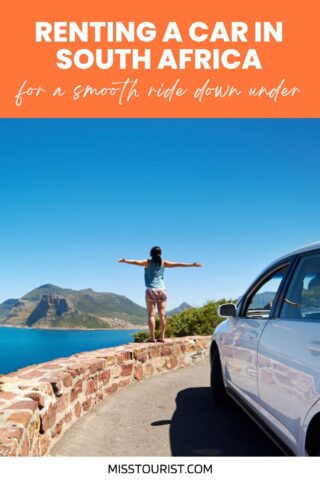
Pin it for later!
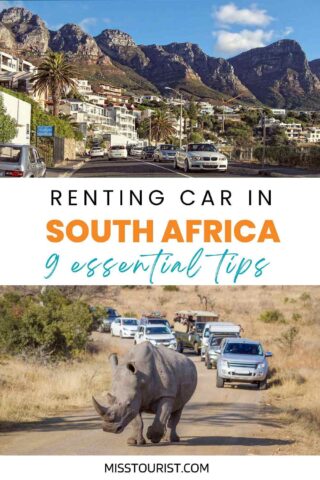

 Kathryn Donoghue
Kathryn Donoghue 






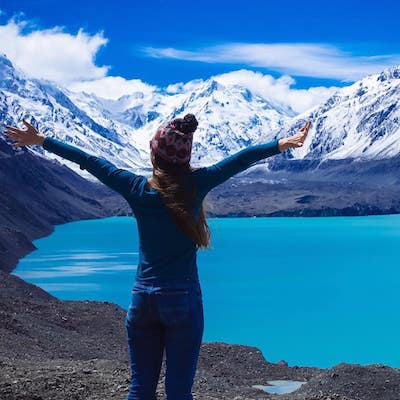
Kathryn, i´m impressed !
What a complete, beautifully readable compilation on this subject.
My respect, when I think of what it took to compile all this information and present it so beautifully.
Love… Sonja
Thanks so much for your feedback, Sonja, we appreciate it!
Thank you very much Kathryn for your input, and very usefull information, Im south African but for almost 20 years in the Netherlands. Im going home in December. And no one to pick me up this time, i have to rent a car. I really appreciate your time and efford doing this. THANK U
You are very welcome! We are glad to hear that 🙂